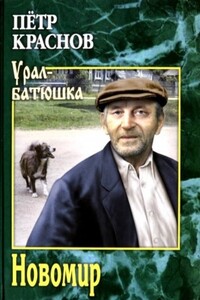36 Arguments for the Existence of God - [15]
“Anyway, the Milgram experiment is an escalation game. Once a participant takes the first step, he’s already paid a certain price-he’s inflicted discomfort, and he’s feeling bad about it-but if he stops he’ll get nothing for his pain. He won’t have successfully completed a psychological experiment and contributed something to science, and that authority figure running the experiment is going to be displeased with him. So, once he’s made his first bid, and the experimenter escalates by telling him he has to give an even stronger shock at the next mistake or he will not have completed the experiment like a good subject, he’s more than likely to escalate by complying. Just like the dollar auction, once you start there’s no natural place to end until the experimenter calls a halt to it. It’s all perfectly rational, step by step, even if it leads to a bizarre result. In fact, given that the experiment is, in fact, an escalation game, the outcome is completely predictable.
“And here’s how to empirically test what I’m proposing. Run the experiment with the participants instructed, with no matter how much authority, to administer a deadly voltage on the first trial, without any incremental escalation, and see what happens. I predict that not a single subject will do it.”
Lucinda Mandelbaum had, on the spot, not only devised an alternative explanation that undermined the claims of the presenter, but, in the best scientific tradition, had also conceived a way of testing the two alternative hypotheses. And it had all come out so smooth and polished- frankly, a lot more coherent than the delivered lecture itself. Cass thought there might have been a scattering of applause following her rejoinder, although he couldn’t be sure that he hadn’t projected his own silent ovation onto the external world.
Cass, ravished, followed the ensuing dialogue between the astonishing Lucinda and the atomizing Lipkin. There was no doubt in Cass’s mind, as he was sure that there was no doubt in anyone’s mind, including Lipkin’s, that Lucinda got the better of the man, whom Cass now actively disliked for keeping up his increasingly whining refusal to accept Lucinda’s brilliant counter-explanation.
Pavel Yarnau, the smarmy chair of the Psychology Department, finally called a halt to the heated Q & A, thanking “our speaker for providing us all with such a lively time and much food for thought. And now let’s continue the discussion over more mundane fare, not to speak of drink. I ask you all to join me upstairs in the Leah and Marty Feingold Room for the reception in honor of Professor Lipkin.”
“Well, this has been fun,” Lucinda said to Cass as they were both standing, waiting for their row to clear out so that they could proceed. Did she mean merely Lipkin’s talk or the communion between them? Her eyes were scanning the crowd. “Are you going to that dinner for Lipkin?” she asked without really looking at him.
“No, I didn’t sign up.”
Cass rarely put his name on the sign-up sheets that had slots for ten faculty members and four graduate students to entertain the speaker at one of the local restaurants that had sprouted up along the formerly decrepit and now almost hip Maudlin Street. With the inflated property values of Cambridge and Boston driving chefs to outlying areas, Weedham, Massachusetts, was enjoying a restaurant renaissance, trendy little spots blossoming amid the blight.
“Well, then, I guess I’ll see you soon,” and she turned away, apologetically squeezing past the colleagues over whom she’d just recently stepped. Cass stood there watching her as she strode up to the podium. She and Lipkin shook hands cordially, even enthusiastically. Lucinda was smiling broadly as she spoke to him, and he was laughing as he answered her. There were obviously no hard feelings between these MVPs.
Cass watched for a while, his head cocked and his crooked smile in place, until everybody started heading out to the reception, lining up behind Lipkin and Lucinda like retinue behind royalty. Cass skipped the reception, and went home happy, chewing over it all. It wasn’t so much food for thought. It was ambrosia.
He saw Lucinda Mandelbaum two days later, at a university building where faculty meetings were held. She was standing next to Sebastian Held, both of them tanking up on caffeine in the few minutes before the meeting began.
Cass hated faculty meetings and skipped as many as he could get away with. Watching his colleagues’ intense engagement in the proceedings, the eloquence and pedantry slathered on points too minute for any but the best-trained minds to discern, he would be overtaken by his own failure to grasp human nature. But today he had looked forward to coming.
Lucinda, dressed in a pair of tailored black slacks and a pale-gray sweater matching the color of her eyes, seemed deep in conversation with Sebastian Held, but Cass strode right over and greeted them both enthusiastically.
“Hello,” Lucinda had said, smiling back at him with formally polite blankness, reaching out her hand to shake his with a briskly firm shake. “Lucinda Mandelbaum.”

Жизнь Полины была похожа на сказку: обожаемая работа, родители, любимый мужчина. Но однажды всё рухнуло… Доведенная до отчаяния Полина знакомится на крыше многоэтажки со странным парнем Петей. Он работает в супермаркете, а в свободное время ходит по крышам, уговаривая девушек не совершать страшный поступок. Петя говорит, что земная жизнь временна, и жить нужно так, словно тебе дали роль в театре. Полина восхищается его хладнокровием, но она даже не представляет, кем на самом деле является Петя.

«Неконтролируемая мысль» — это сборник стихотворений и поэм о бытие, жизни и окружающем мире, содержащий в себе 51 поэтическое произведение. В каждом стихотворении заложена частица автора, которая очень точно передает состояние его души в момент написания конкретного стихотворения. Стихотворение — зеркало души, поэтому каждая его строка даёт читателю возможность понять душевное состояние поэта.

Россия, Сибирь. 2008 год. Сюда, в небольшой город под видом актеров приезжают два неприметных американца. На самом деле они планируют совершить здесь массовое сатанинское убийство, которое навсегда изменит историю планеты так, как хотят того Силы Зла. В этом им помогают местные преступники и продажные сотрудники милиции. Но не всем по нраву этот мистический и темный план. Ему противостоят члены некоего Тайного Братства. И, конечно же, наш главный герой, находящийся не в самой лучшей форме.

О чем этот роман? Казалось бы, это двенадцать не связанных друг с другом рассказов. Или что-то их все же объединяет? Что нас всех объединяет? Нас, русских. Водка? Кровь? Любовь! Вот, что нас всех объединяет. Несмотря на все ужасы, которые происходили в прошлом и, несомненно, произойдут в будущем. И сквозь века и сквозь столетия, одна женщина, певица поет нам эту песню. Я чувствую любовь! Поет она. И значит, любовь есть. Ты чувствуешь любовь, читатель?

События, описанные в повестях «Новомир» и «Звезда моя, вечерница», происходят в сёлах Южного Урала (Оренбуржья) в конце перестройки и начале пресловутых «реформ». Главный персонаж повести «Новомир» — пенсионер, всю жизнь проработавший механизатором, доживающий свой век в полузаброшенной нынешней деревне, но сумевший, несмотря ни на что, сохранить в себе то человеческое, что напрочь утрачено так называемыми новыми русскими. Героиня повести «Звезда моя, вечерница» встречает наконец того единственного, кого не теряла надежды найти, — свою любовь, опору, соратника по жизни, и это во времена очередной русской смуты, обрушения всего, чем жили и на что так надеялись… Новая книга известного российского прозаика, лауреата премий имени И.А. Бунина, Александра Невского, Д.Н. Мамина-Сибиряка и многих других.

Две женщины — наша современница студентка и советская поэтесса, их судьбы пересекаются, скрещиваться и в них, как в зеркале отражается эпоха…